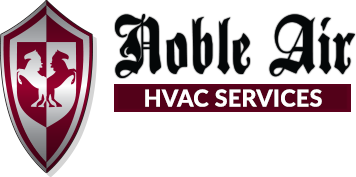Though small businesses dominate the world of commercial commerce in the United States. There are many organizations which, although classified as “small businesses,” are relatively quite large. According to the Small Business and Entrepreneurship Council, there are some 5.68 million firms in the country, with as many as 500 employees, constituting a whopping 99.7 percent of all corporate entities. However, businesses with less than 20 employees account for an impressive 89.8 percent.
What Businesses should Know about Refrigerant Safety
What these figures demonstrate is there is a large contingent of commercial organizations that have far more than 20 staff members. These companies can be large enough to require a full time maintenance staff, which are commonly referred to as facility managers. These employees are typically expert generalists, meaning skilled enough to maintain and monitor systems, but not intimately familiar with their complex components.
The Clean Air Act does not allow any refrigerant to be vented into the atmosphere during installation, service, or retirement of equipment. Therefore, R-22 must be recovered and recycled (for reuse in the same system), reclaimed (reprocessed to the same purity standard as new R-22), or destroyed. After 2020, the servicing of R-22-based systems will rely solely on recycled or reclaimed refrigerants. —U.S. Environmental Protection Agency
Because of these kinds of situations, refrigerant safety is an unavoidable and important issue. These can be a source of personal injury, pose a danger to the environment, and, can be safety hazards that are in violation of environmental regulations, leading to hefty fines. To prevent accidents, do the following for refrigerant safety:
- Hire only certified technicians to work with refrigerant. The U.S. Environmental Protection Agency is serious about who is and who is not allowed to perform equipment maintenance service or dispose of refrigerants. Technicians need to hold a EPA 608 certification in order to perform these functions to be in compliance with the law. These certifications don’t expire, but, certificate holders are expected to keep up-to-date on the latest regulations, practices, and procedures.
- Restrict access to refrigerants and other harmful materials. Because of their hazardous nature, refrigerants and other harmful materials should be kept in a specific, restricted location. Only people with the proper training, licensing, and experience should have access to these types of materials.
- Install proper safety equipment where needed. We’ve all seen eye wash stations, first aid kits, and fire extinguishers in certain areas of facilities — there’s definitely reasons those safety measures are in-place. Other safety equipment, such as an emergency phone and/or other communications should also be present.
- Install monitoring equipment to record all activity. As a preventative and proactive measure, install video and audio monitoring equipment where hazardous materials are stored. In the case an accident occurs, you’ll have a way to capture and review what actually happened.
- Conspicuously place warning labels where hazardous materials are stored. Big warning labels are put in conspicuous places for a good reason — to help keep people safe. These should be placed where hazardous materials are stored, not only as a warning, but also, to be in legal compliance.
If your Phoenix area company does not employ certified technicians to handle and dispose of refrigerant, give us a call right away. We’ll be happy to answer any questions you might have and to assist you with any of your commercial HVAC maintenance, repair, or installation needs.

